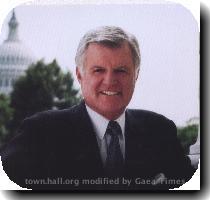NH governor proposes plans to minimize layoffs, train jobless workers in state-of-state speech
By Norma Love, APThursday, January 21, 2010
NH gov proposes programs for unemployed workers
CONCORD, N.H. — Facing rising unemployment and voter anger, Democratic Gov. John Lynch proposed Thursday using New Hampshire’s unemployment fund to minimize layoffs and train jobless workers.
Lynch did not mention Republican Scott Brown’s upset victory Tuesday over Democrat Martha Coakley for the Massachusetts U.S. Senate seat held by the late Sen. Edward Kennedy, but his state-of-the-state speech focused on a topic clearly on voters’ minds: jobs.
“It is the time to redouble our efforts to help every worker who wants a job to get a job. This is the time to help businesses grow and innovate,” Lynch said.
In classic New Hampshire style, Lynch outlined initiatives to help workers that won’t cost the state or mean higher business taxes. He proposed:
— Using unemployment benefits to cover the cost of reduced hours as an alternative to layoffs. Unionized workers would have to agree, and companies would have to submit a plan to the state. Only full-time workers would be eligible. The program would not cover seasonal workers. Seventeen other states including, Vermont and Massachusetts, have similar programs. Companies could participate for a maximum of 26 weeks.
— Letting unemployed workers continue to receive benefits while undergoing up to six weeks of on-the-job training. Workers would receive up to 24 hours of training per week at no cost to the potential employer. At the end of six weeks, the company would have to decide whether to hire the worker and, if not, provide a written evaluation of the worker. Companies could apply for state and federal grants to help pay training costs. Georgia has a similar program.
— Assessing newly unemployed workers’ skills and providing them with certificates to show employers.
— Spending up to $2 million next year on remedial job training.
Some of the initiatives will require legislation that was expected to be filed Thursday.
The state’s unemployment rate reached 7 percent in December, which is below the national rate of 10 percent, but well above where it was last year. Almost 52,000 New Hampshire residents are out of work. Last month, nearly 35,000 collected unemployment benefits, according to Lynch’s office.
Lynch said the initiatives will “help our citizens stay at work if they already have jobs, return to work if they are unemployed; and ensure that they are ready to work at new jobs.”
By avoiding layoffs, businesses would retain skilled workers, and the workers would keep most of their pay and their health insurance, he said.
Lynch also announced plans to use $750,000 in federal energy stimulus funds to hire the University of New Hampshire to help companies with clean energy products bring them to market. Companies would apply to become one of a few that would get help from the university’s business, science and engineering faculty to develop finance and marketing plans. Ten companies are expected to be selected this year and another 10 next year.
Lynch also focused attention on the state’s struggling North Country. The state plans to work with White Mountain Community College to help North Country residents develop business and marketing plans and get connected to financing and other services, he said.
The college would help the state train people to work at the new federal prison opening in Berlin this fall. Companies with goods and services to sell to the prison also would receive attention, he said.
Lynch said the state is beginning to see “glimmers of light” in the recession, but state revenues still are lagging while the demand for state services continues to rise. Without offering details, Lynch said difficult budget decisions are coming.
Administrative Services Commissioner Linda Hodgdon estimated this week that revenues would fall short of predictions by $65 million over the two-year budget that runs to mid 2011.
Lynch also criticized the proposed, and possibly now doomed, federal health care overhaul. He said Congress should not pile unreasonable new costs on the states or hand out special deals to individual states. The federal legislation would give special breaks to a handful of states. New Hampshire is not one of them.
“Every state should be treated fairly,” Lynch said.
Tags: Concord, Edward Kennedy, New Hampshire, North America, Personnel, Products And Services, United States

